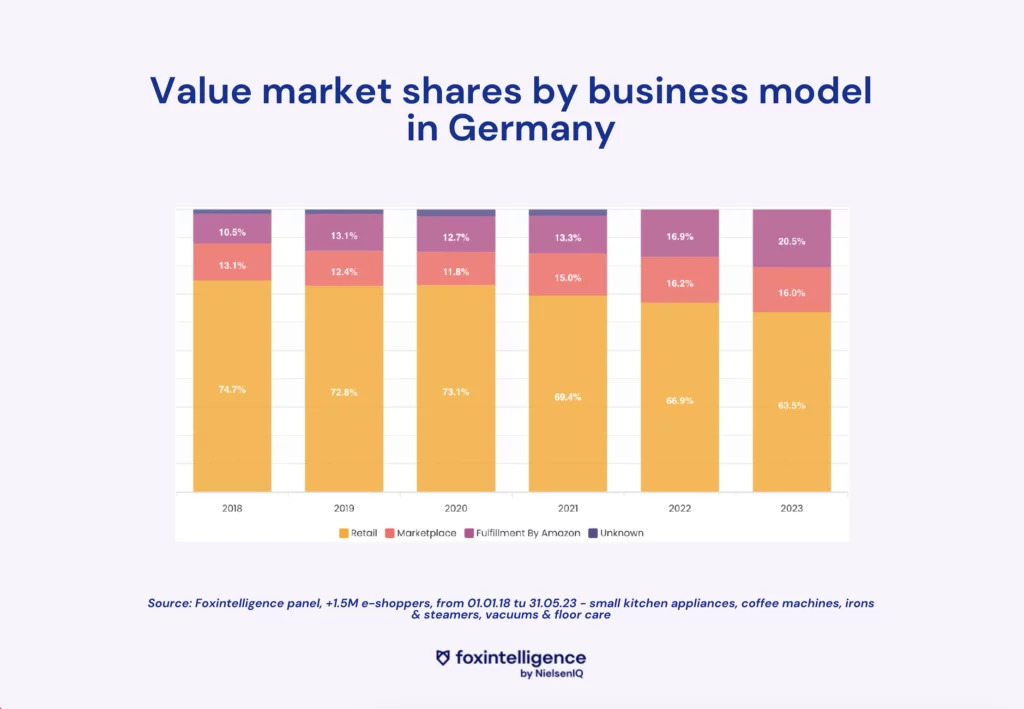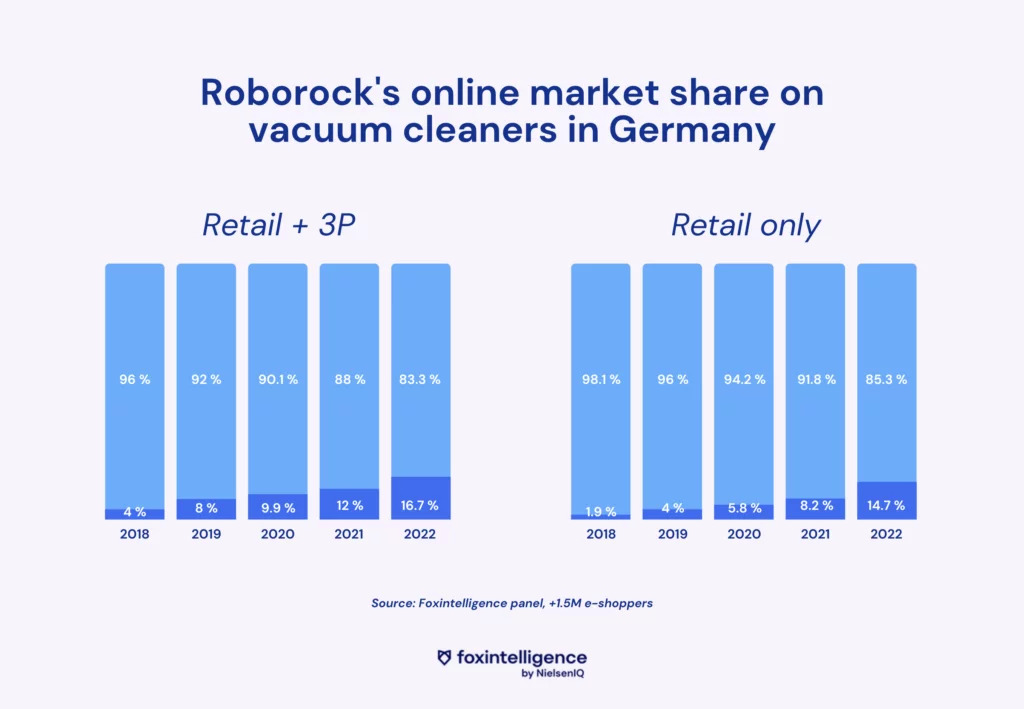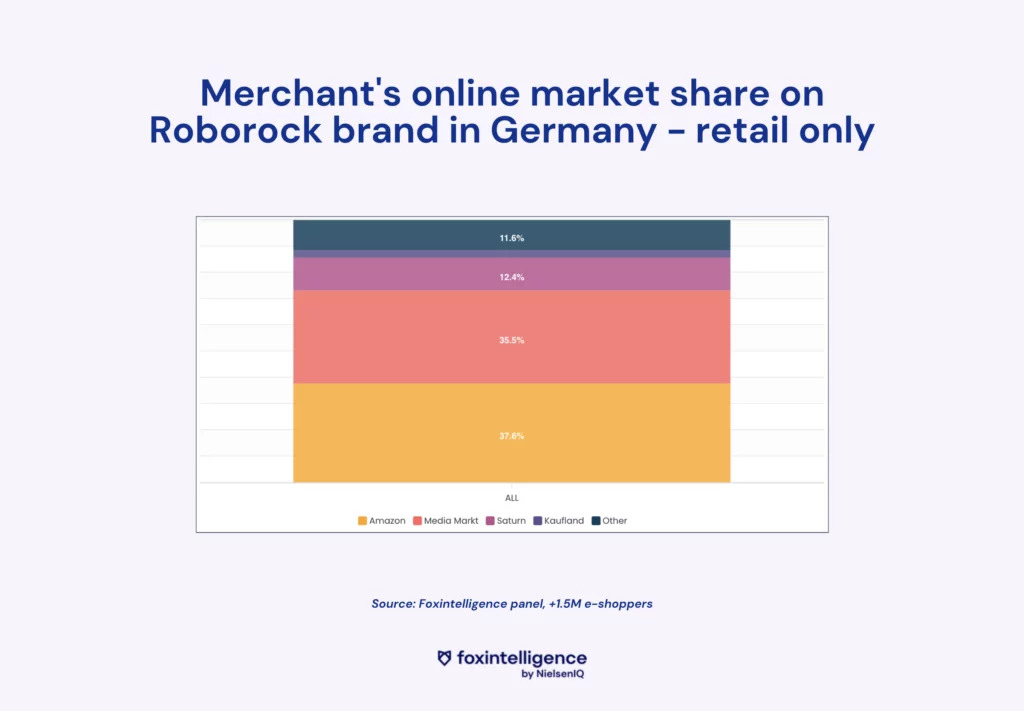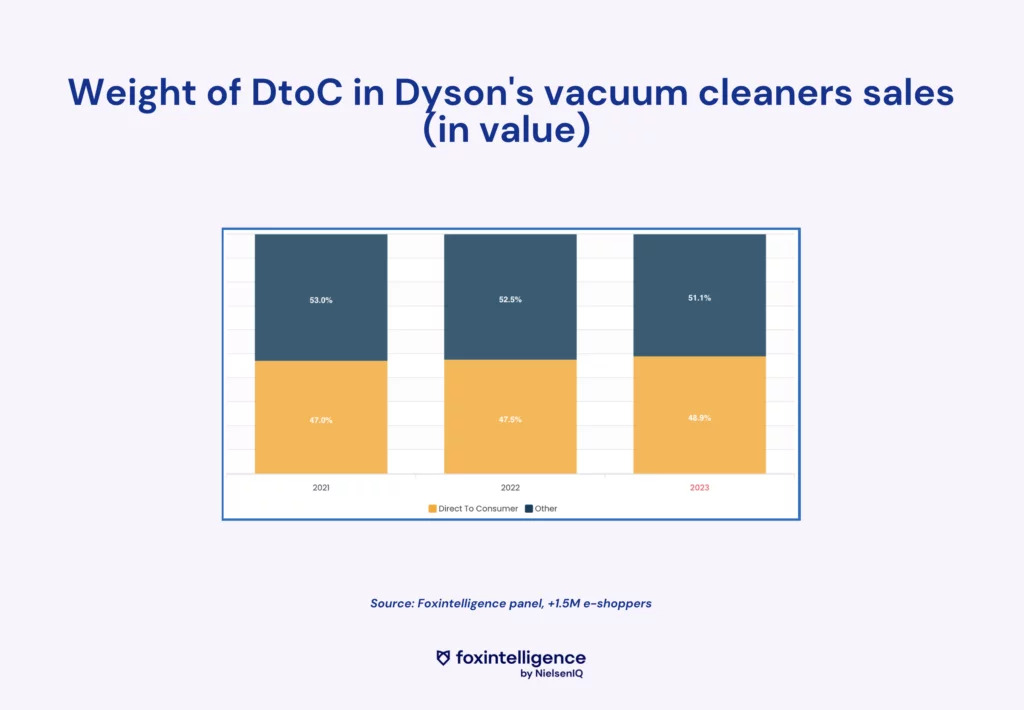Marketplaces in the high-tech category
In the high-tech market, the weight of retail is steadily declining. It still accounts for over half of total sales, but it fell by 10% in multiple categories between 2020 and 2023: small kitchen appliances, coffee machines, irons & steamers, vacuum & floor care.
This decline has benefited marketplaces and the FBA program (*fulfillment by Amazon), which are gaining market share year after year.

The marketplace, a gateway for emerging brands
Marketplaces have become a gateway for emerging brands. Brands are starting to sell their products on marketplaces without distribution contracts or commitment. It’s a way of testing out their products and business models, and quickly understanding whether their product is finding an audience. They can then move on to other channels when their market share meets their expectations.
Roborock has put this to the test: in Germany, the brand entered the market via 3P (marketplace & fulfillment by Amazon). In 4 years, the brand has multiplied its online market share by 4 in the vacuum cleaner segment – capturing 16% of the category’s online market share by 2022.
If we take a look at the brand’s distribution mix, we can see that the marketplace and fullfillment by Amazon approach has enabled the brand to establish itself on the German market without a large-scale distribution agreement. This strategy is rooted in caution, but has proved highly effective. Comparing retail-only and retail + 3P data, it’s clear that Roborock has taken advantage of the 3P strategy to grow in the German market – especially in the early years.

Zoning in on new players to win market share
Foxintelligence data enables to detect the growth of emerging brands. In Germany, only MediaMarkt/Saturn compete with Amazon in online sales of Roborock products for example. The group began selling Roborock as a 1st-Party (1P) in 2019. By 2022, it was capturing over 35% of its online sales.
If other retailers in the sector had detected the brand’s exponential growth, they could have jumped in early and integrated it into their catalogs.
Foxintelligence’s marketplace data analysis enables emerging brands to be spotted instantly, and insights to be obtained in real time which enables retailers to adjust their strategy.

DtoC in the high-tech category
Taking Germany as an example, almost half of Dyson’s vacuum cleaner online sales (by value) are DtoC. High-tech market players need to monitor their online market and the behavior of their competitors and consumers in real time: to gain market share and stay one step ahead.

Key Insights
- Brands that perform well through 3P often end up making their mark in retail: it’s important to monitor sales across all channels, not just retail, and to analyze trends to capture emerging players (brands and sellers)
- For marketplaces, Foxintelligence’s Ecommerce data can be used to identify potential partners – new brands, growing categories, sellers…
- The development of DtoC sales is changing the structure of the market, and keeping an eye on this channel is becoming increasingly crucial




